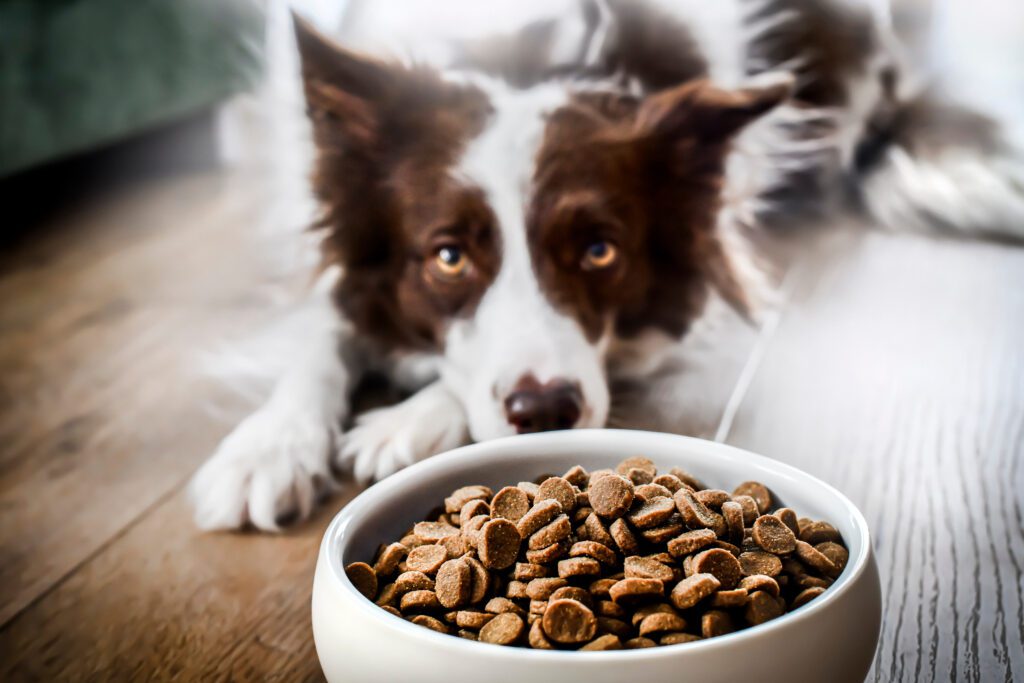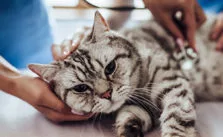
As devoted pet owners, we all strive to provide the best for our animal companions, and a significant part of that care comes down to what we feed them. Below, we explore the world of pet nutrition, weighing the benefits and drawbacks of different types of pet foods. From the premium brands that claim to offer superior nutrition, to the bespoke touch of homemade diets, and the tried-and-true reliability of standard dry pet foods, understanding these options is vital for every pet parent.
We’ll examine why certain brands of expensive pet food are popular, what a whole ingredient-based diet entails, and the reasons to consider a homemade diet for your pet. Importantly, we’ll also address common mistakes pet owners make in preparing pet food at home, the potential health consequences of improper feeding, and the ongoing debate surrounding grain-free diets.
By the end of this article, you’ll be equipped with the knowledge to answer a crucial question: Is expensive, premium pet food really better than its cheaper counterparts? Join us as we navigate the nuances of pet nutrition, ensuring your pet’s health and happiness through informed dietary choices.
Comparing Pet Food Types: Expensive, Homemade, and Regular Dry Food
When choosing the right food for your pet, understanding the differences between expensive pet foods, homemade diets, and typical dry foods is key. Standard dry pet food, often the most convenient and cost-effective option, generally meets the basic nutritional needs of dogs and cats. However, expensive pet foods and homemade diets can offer tailored nutritional benefits. It’s essential to balance nutritional value with your pet’s specific health requirements and your lifestyle.
Popular Expensive Pet Food Brands and Their Appeal
Expensive pet food brands like Orijen, Acana, and Royal Canin have gained popularity due to their high-quality ingredients and specialized formulas. These brands often use whole, fresh ingredients and cater to specific dietary needs, which can be crucial for pets with certain health conditions. Their popularity also stems from their focus on comprehensive nutrition, albeit at a higher price point.
A whole ingredient-based diet focuses on using unprocessed or minimally processed ingredients, providing pets with nutrients in their most natural form. This approach can enhance digestibility and nutrient absorption, leading to better overall health. It’s especially beneficial for pets with allergies or sensitivities to certain processed ingredients.
What About Homemade Pet Diets?
All homemade pet diets need to be designed by a boarded veterinary nutritionist. The University of Tennessee College of Veterinary Medicine offers these services for a fee, and we recommend that you reach out to us to assist you in getting the proper nutritionist assigned to your pet to ensure the optimal diet. Another great option to help you get started is to use the diet calculator at BalanceIt.com. This calculator was designed by a boarded veterinary nutritionist and can help you design a diet for your companion that is nutritionally sound.
Homemade pet diets allow pet owners to have complete control over the ingredients and quality of their pet’s food. This can be particularly advantageous for pets with specific dietary needs or health issues. However, it’s crucial to ensure these diets are well-balanced and meet all of your pet’s nutritional requirements.
Common Pitfalls in Preparing Homemade Pet Food
While every pet parent wants the best for their dog or cat, some risks come with preparing your pet’s food at home from scratch. Below are some pitfalls to avoid if this is the route you choose to take in feeding your pet!
Using Unsafe or Unhealthy Ingredients: Some ingredients that are harmless to humans can be toxic to pets. For example, onions, garlic, grapes, and chocolate should never be used in pet meals. Additionally, avoid high-fat foods and bones that can cause digestive issues or choking hazards.
Lack of Trusted Resources and Recipe Accuracy: It’s essential to rely on recipes developed by board-certified veterinary nutritionists. Using unverified sources for recipes can result in meals that lack the necessary nutrients. Always follow recipes precisely without substitutions to ensure nutritional completeness.
Unbalanced Meals: Every pet’s diet should have the right balance of proteins, carbohydrates, fats, vitamins, and minerals. Overlooking this balance can lead to health issues like bone problems in growing pets or organ dysfunction. Remember, what’s nutritious for a human may not be suitable for pets.
Ignoring Veterinary Advice and Nutritional Needs: Your pet’s diet should be tailored to their specific life stage, breed, size, and health condition. Failing to consult with a veterinarian or a pet nutrition specialist can lead to diets that don’t meet your pet’s unique needs. Regular checkups and discussions about diet are critical.
Consistency and Portion Control Issues: Homemade diets require consistency in preparation and portion control. Inconsistent meal sizes or frequent recipe changes can lead to weight gain or nutritional imbalances in your pet. Use a kitchen scale for precise measurements and stick to a feeding schedule.
Neglecting Supplements: Some homemade diets require additional supplements to be nutritionally complete. For instance, a diet without enough calcium can lead to bone health problems. Your vet can guide you on what supplements are necessary based on the diet you’re feeding. It’s imperative that a board-certified pet nutritionist be involved in the formulation of your pet’s diet because so many essential nutrients are overlooked.
Overlooking Food Safety: Just like human food, homemade pet food needs to be prepared, handled, and stored safely to prevent foodborne illnesses. Ensure proper food hygiene practices, like washing hands and surfaces, cooking meats to the right temperatures, and storing food correctly.
The Debate on Grain-Free Diets
Grain-free diets are frequently marketed as being healthier for pets, but they are also a popular topic of discussion due to their potential link to dilated cardiomyopathy in dogs. While some pets may require grain-free diets due to a gluten sensitivity or GI upset, it’s essential to understand the risks and consult with your veterinarian to ensure your pet’s heart health isn’t compromised. While the link between grain-free diets and dilated cardiomyopathy is not yet definite, the risk remains and you should always speak with your vet before making changes to your pet’s diet.
So, Which Type of Pet Food is Better?
We wish we could give a black-and-white answer, but the question of whether expensive or homemade pet food is better than affordable dry food is not one-size-fits-all and can indeed vary based on a pet’s individual needs.
Here’s a more nuanced view:
Individual Pet Needs
Every pet is unique, with specific dietary requirements based on factors like age, breed, health status, and activity level. For instance, a pet with a specific health condition may benefit from a specialized, expensive commercial diet formulated for that condition, while another might thrive on a carefully balanced homemade diet.
Expensive Pet Foods
These often come with high-quality ingredients and are formulated to meet specific nutritional standards. They can be particularly beneficial for pets with special dietary needs or health issues. However, they might not be necessary for every pet, especially if a standard, nutritionally balanced diet suits them just fine.
Homemade Pet Foods
Providing a homemade diet allows for complete control over the ingredients and can be tailored to your pet’s likes and dislikes. This can be a great option for pets with food sensitivities or allergies. However, it requires a significant time investment and a deep understanding of pet nutrition to ensure the diet is balanced and meets all of your pet’s nutritional needs. You absolutely must work with a boarded veterinary nutritionist to make sure your pet is getting the best diet formulated to their needs.
Nutritional Balance
Whether you choose expensive or homemade pet food, the key is ensuring that the diet is nutritionally balanced. An unbalanced diet, whether store-bought or homemade, can lead to health problems over time.
Veterinary Advice
You need to consult with a veterinarian or a pet nutrition specialist when choosing or changing your pet’s diet. They can provide guidance based on your pet’s specific needs and help you navigate the vast (and often overwhelming) array of options available.
Need Help Making Informed Decisions for Your Pet’s Diet?
While many pet foods are available, Animal Ark strongly recommends you stick with the BIG FOUR when it comes to pet foods as these four companies have the most boarded nutritionists on staff, have the longest history in the pet food industry, and they all produce high-quality food that will serve your pet’s needs (assuming no health concerns are present):
- Purina (we recommend Pro Plan as that is their superior line of products)
- Royal Canin
- Hill’s Science Diet
- Iams/Eukanuba
Expensive foods, homemade pet foods, and affordable dry pet foods can all be suitable options, depending on the individual needs and circumstances of each pet. There’s no universal “better” option—what matters most is that the chosen diet is approved by your veterinarian, nutritionally balanced, and completely appropriate for your pet.
Deciding on the right food for your four-legged family member involves considering their specific health needs, your lifestyle, and your budget. Whether you choose an expensive brand, a homemade diet, or a typical dry food, talk to your veterinarian to ensure it meets your pet’s nutritional requirements. For personalized advice, don’t hesitate to reach out to Animal Ark Animal Hospital in Franklin, TN, at (615) 778-0880.
Recent Posts
Pets and Disasters
We always need to be prepared to take care of our animals, especially during disasters...
Help your pet whittle away his waist
Did you know that 30 to 40% of dogs and cats in the United States...
Pests to worry about in Middle Tennessee
Worms, fleas, ticks and other parasites are not fun—your pet would tell you if he...
About Us
Animal Ark Animal Hospital offers exceptional, quality pet care with a highly skilled and compassionate staff who understands what a pet means to you and your family.



